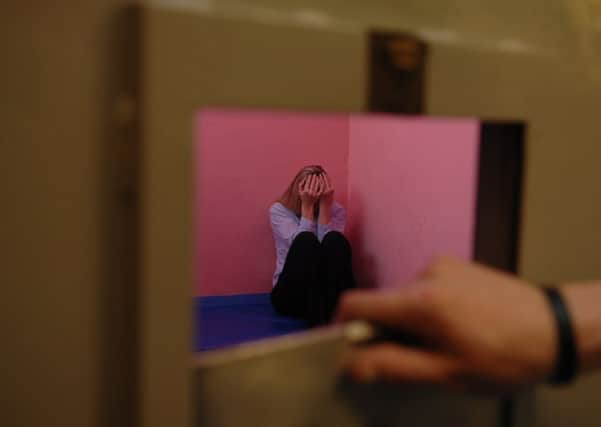Calls for better care of solitary prisoners


The first national report on the use of solitary confinement in every type of custody in the UK shows that it is often called different names leading to inconsistencies, poor regimes and inadequate safeguards.
Campaigners say that using “soothing terminology” such as “time out” , “low stimulus”, and “confined to room” masks the possibility that vulnerable people could be kept in isolation without safeguards. Sometimes this would amount to solitary confinement.
Advertisement
Hide AdAdvertisement
Hide AdThe Scottish Human Rights Commission (SHRC) is among 20 independent inspectorates known as the National Preventative Mechanism (NPM) working together to deliver the UK’s UN treaty obligations to prevent mistreatment of detainees in custody.
The review flags up a number of inconsistencies. Two men with identical mental health needs, both at risk of self-harm and showing signs of disruptive behaviour, could easily be treated completely differently, with one put in a prison segregation unit, locked up in a dirty cell for 23 hours, with only a radio for company, and the other in his own room with his belongings and visits from friends and relatives, as well as health care professionals helping him to integrate.
Similarly, a 16-year-old boy in a young offender’s institution might be disciplined by being confined in an adult segregation unit for days while a boy in a secure training centre might be confined in his own room for a few hours for the same behaviour.
Professor Alan Miller, chair of the SHRC, said that whilst there had been polices aimed at addressing the issue, the “missing link” was adequate training of front-line staff.
“The report reflects the situation in Scotland that there are varying practices and if not seen through a human rights lens can be a breach of dignity and human rights.
“This is a long-running problem and while both the present and previous governments have good intentions and issue policy statements and guidelines they are not put into practice enough for those in care.
“Not enough attention is given to workplace development for front-line staff such as police officers and care workers, meaning such policies are not implemented.”
“There is also a lack of awareness among the people affected about what their rights are. They may know in some sense that they have a right to certain basic fundamental things but not know exactly what.”
Advertisement
Hide AdAdvertisement
Hide AdSpeaking on behalf of the 20 members of the UK NPM, Nick Hardwick, HM chief inspector of prisons, said: “In many cases, detainees are isolated legitimately to prevent harm or provide a calm environment that is in their best interest. However, prolonged solitary confinement or isolation can also have a detrimental effect on a detainee’s mental health, exacerbate behaviour problems and increase the risks of their ill-treatment.
“It is already clear that poor governance, inconsistent practice and a soothing terminology allow some individuals to be held in solitary confinement for long periods without adequate safeguards – and that includes some of the most vulnerable people in detention, such as children and mentally ill people.”
The NPM used the ‘Mandela Rules’ – a widely accepted international definition of solitary confinement. This definition has now been adopted in new UN prison rules to protect the rights of detainees.
A spokeswoman for the Scottish Government said: “The use of isolation or seclusion will vary depending on the agency and the individual involved.
“It is a measure of last resort to protect the safety of the individual and/or others and is closely monitored, ensuring that the individual is treated with care and consideration.”